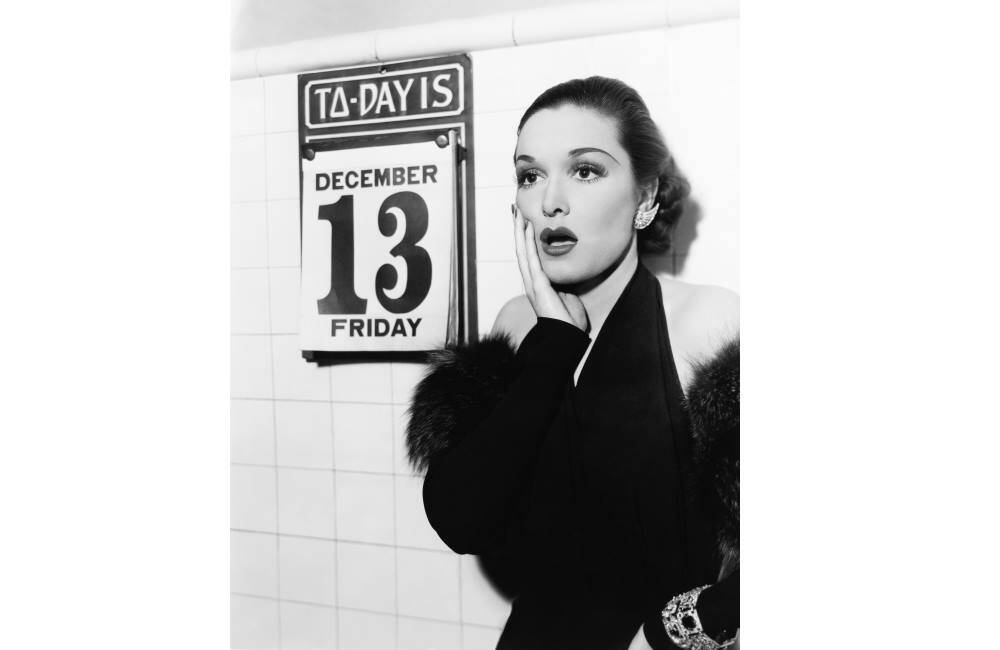Friday the 13th spawned a popular horror movie series and a popular turn of the century novel. It also provides a handy excuse when things go wrong on that day. But when and why did Friday the 13th become a bad day, moving from just another day and date combination to something sinister?
Much like knife superstitions, the roots of the Friday the 13th myth delve deep into ancient events and beliefs. Stories around both have evolved over the centuries, making the modern Friday the 13th a bad day that still makes some people nervous.
Knife Superstations You’ve Never Heard of
What’s Wrong With the Number 13?
The list of strange superstitions is long, especially if you consider all the things that supposedly bring bad luck. They include a black cat crossing your path, walking under a ladder, breaking a mirror or hanging a horseshoe with the ends pointing down.
Also, the number 13. But why that number? Why not 7 or 36?
Scholars point to a number of possibilities. The first is that 13 people were seated at the Last Supper, the meal Jesus had with his 12 disciples the night before his execution. Judas, who betrayed Jesus to the Romans, was the 13th guest to arrive. In Norse mythology, the mischievous god Loki was the 13th arrival at a dinner party in Valhalla that first introduced evil and chaos to the world.
You see this belief in effect today when buildings leave out a 13th floor or when people refuse to hold a dinner party with 13 guests at the table.
Why Include a Coin When Gifting a Knife
Why Is Friday Bad News?
For most of us, Friday means the end of the work week. It’s a day to relax and have fun. But throughout history, Friday has been a day where bad things happened. This is especially true in Christianity.
For Christians, Good Friday is the day the Romans crucified Jesus. Some also believe Eve gave the apple to Adam on Friday and Cain killed his brother, Abel, on Friday.
But it’s the combination of Friday and the 13th day of the month that has proven the most ominous omen. Most credit its origin to the fate of feared warriors who first appeared in the 12th century.
Friday the 13th and the Knights Templar
The Knights Templar founded their monastic military order in 1118. They formed to guard pilgrims as they traveled to Jerusalem. Over the years, royalty from across Europe donated to the order, wanting to earn the favor of the powerful and popular knights.
That changed with the French King Philip IV. By the early 14th century, the Knights Templar ranked among the most powerful organizations in the world. Their vast wealth allowed them to build a series of castles throughout Europe. King Philip had come to resent their power and influence.
Also, he wanted their money. The king previously pillaged money from the Lombards, who controlled banking, and French Jews who owned a great deal of property. Now, he set his sights on the knights. On Oct. 13, 1307 – a Friday – he launched a widespread campaign to arrest, detain and torture members of the order. This included the knights as well as people who worked for the vast organization – accountants, farmers, horse groomers and stablemen, etc.
The king’s men engaged in torture that horrifies people to this day. One example: coating feet in oil and holding them to a fire. Most were held in tiny cells and denied food or water. Little wonder many of them confessed to the king’s wild accusations that the knights practiced black magic, devil worship, fraud and even spit on the cross.
Also, little wonder that Friday the 13th became seared into the collective conscious of Western civilization as a date where really, really bad things happen.
Best Action Movies of All Time
Friday the 13th in the 20th Century
In the early 20th century, novelist and businessman Thomas Lawson sparked renewed interest in the Friday the 13th legend. His novel, “Friday, the Thirteenth,” is little known today. But it became very popular when first published in 1907.
Lawson, deeply superstitious, created a plot in which a corrupt trader brings down Wall Street and makes a fortune on Friday the 13th. Somewhat ironically, people accused Lawson himself of many shady deals in his day. Whatever the case, Lawson lives on to this day, but not because of his book or business deals. For one thing, the only seven-sailed schooner ever built was named after him. For another, the Lawson sofa, still popular today, was first designed and named after the business tycoon.
And then came the Friday the 13th film series. The first film, written by veteran soap opera writer and book author Victor B. Miller, hit theaters in 1980. It involved the story of Jason Voorhees, born on Friday the 13th. It led to a long series of popular films featuring the hockey mask-wearing killer.
Other real-world events in the 20th century have also provided fuel for the myth. The Germans bombed Buckingham Palace on Friday, Sept. 13, 1940. A cyclone that killed more than 300,000 people in Bangladesh happened on a Friday, Nov. 13, 1970. And rapper Tupac Shakur died Friday, Sept. 13, 1996.
All of these events have helped made Friday the 13th a bad day for many people. Like many such beliefs, it’s a hard one to shake. Which is why you will likely never see a 13th floor in your hotel.







Leave A Comment